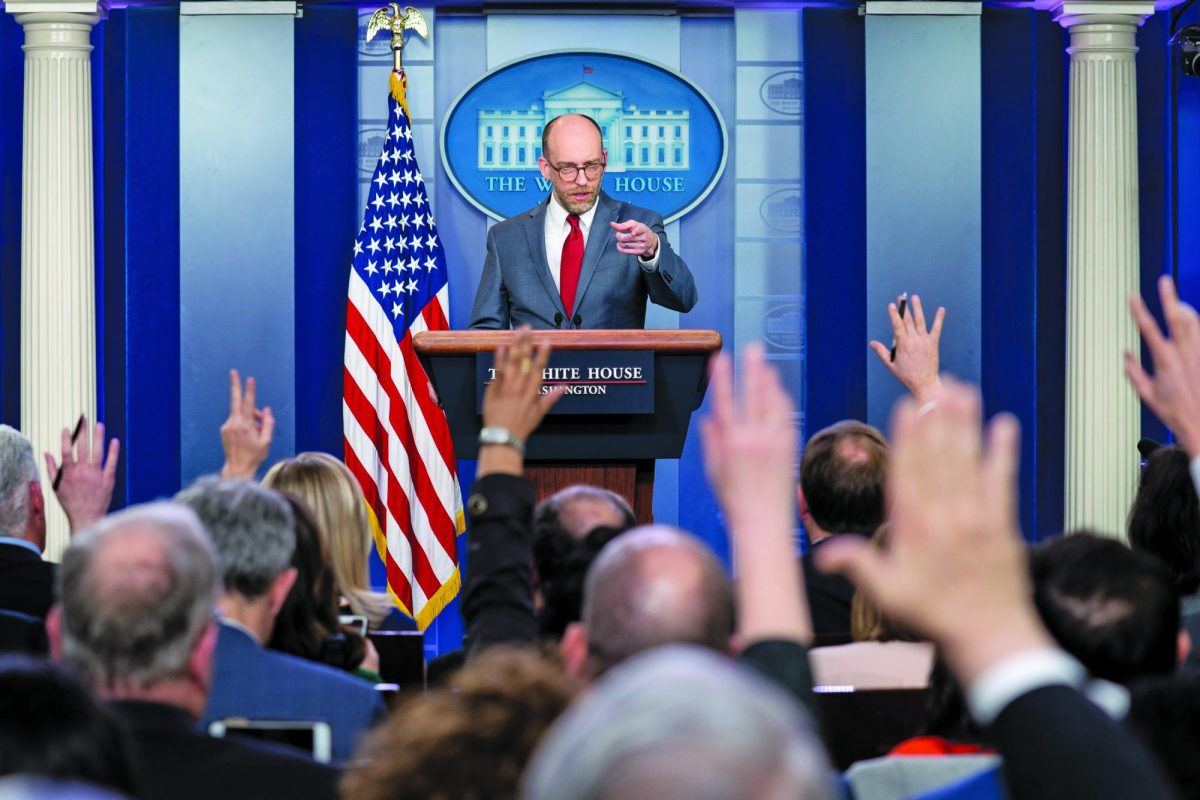Crafted by The Heritage Foundation, an American conservative think tank, along with over 140 former President Donald Trump staffers, Project 2025 is a sweeping 922-page blueprint for conservative rule that could redefine the U.S. government.
Project 2025 lays out a wide ranging conservative agenda — from reshaping federal agencies to reducing government oversight — all based on the idea that unelected bureaucrats wield too much power.
Within this book, titled “Mandate For Leadership,” are 297 objectives that affect the very structure of the U.S. federal government. Some of the most significant reform proposals include mass deportations, banning abortion and reviving the Comstock Act, censoring academic discussions on race, systemic oppression and gender in the classroom and limiting the rights of transgender individuals.
Beyond these policy shifts, advocates for Project 2025 argue that a stronger executive branch is necessary to counteract what they see as a deep-rooted, unelected bureaucracy, while critics, like the Center for American Progress, warn that these changes could negatively affect the checks and balances system.
“The ideas that are embedded in Project 2025 are actions that are recommended to completely reshape and overhaul the federal government, they’re not presenting anything new,” AP United States History teacher Ms. Aditi Doshi said.
“The ideas are kind of like the bedrock of conservative policy and philosophy of government, they haven’t necessarily been implemented in the way that we see the Trump administration implementing these policies in the first 100 days of its administration, but its basic ideas of conservatism applied to the U.S. government.”
Launched in April 2022, Project 2025 has already fierce debate about the future of American government.
Senior Anthony Pasqualone supports many of the initiative’s goals, particularly those related to immigration and youth development.
“I agree that we need to limit and control the impact of illegal immigration as well as the adverse effect the transgender community has, especially when interacting with youth…” he shared.
On the other hand, sophomore Chanel Freeman finds that the initiative is harmful.
“I don’t support the ideals that are being proposed by Project 2025 because it’ll cause the suffering of those affected by the silencing,” Freeman said.
The sweeping nature of Project 2025 has sparked concerns from individuals across the country.
Those opposed to it believe that its recommendations could weaken the country’s democracy and concentrate power in the hands of the president while sidelining agencies meant to supervise his decisions.
Despite Trump’s public rejection, the fingerprints of his previous administration are all over Project 2025. Many of the initiative’s key founders, including Russell Vought, Mark Meadows and Stephen Miller, previously played active roles in shaping his policies. Their vision for the future of conservative governance mirrors many of the priorities Trump displayed while in office—whether he acknowledges it or not.
“I have nothing to do with Project 2025,” Trump said on Sept. 10, 2024 during the ABC News Presidential Debate. “I haven’t read it. I don’t want to read it purposely. I’m not going to read it.”
Vought, Trump’s former director of the Office of Management and Budget, has been a vocal advocate for dismantling what he calls the ‘deep state,’ which is a government composed of potentially secret networks in pursuit of their own goals. Meadows, Trump’s former chief of staff, helped shape the White House’s strategy and legislative priorities. Miller, the architect behind Trump’s harsh immigration policies, has long pushed for more restrictive measures—many of which resurface in Project 2025’s proposals.
Pasqualone speculates that distancing himself from Project 2025 allows Trump to embrace its ideas and policies without being tied to its controversial aspects.
“Just because his former associates are involved doesn’t mean he has to be involved in the negative light painted by the negative effects of project 2025,” Pasqualone said.
Despite denying involvement, Trump has already enacted 87 of the plan’s 297 objectives, 40 of them on his first day in office. These include declaring “sex” is a fixed biological category, reinstating the “Remain in Mexico” policy and cutting funds to the World Health Organization.
An independent tracker hosted by Reddit users /u/rusticgorilla and /u/mollynaquafina monitors the status of each objective, noting what’s implemented and when.
“I think that these are goals that many Republicans and Republican administrations claim to want to fulfill, but have not actually tried to fulfill and now we see the Trump administration doing exactly that, despite the fact that that Trump, when he was running for office, claimed that he had little to no knowledge of Project 2025,” Ms. Doshi said.
With Trump back in the White House, the debate surrounding Project 2025 has only intensified. As his administration begins to enact policies that echo its proposals, critics and supporters are watching closely to see how much of this blueprint becomes reality. Whether it solidifies a new era of conservative governance or sparks political resistance, its impact on American democracy is already shaping the nation’s trajectory.
“I think that if you understand American history, and hopefully our students do after taking history classes at Van Nuys High School, once they graduate, they’re hopefully less willing to kind of have a knee-jerk reaction and understand that there is a context behind this,” Ms. Doshi said.
“That also allows you to more appropriately respond in however way you best see fit to policy programs like Project 2025, whether you believe that they don’t agree with your definition of good government, how you envision American society and its relationship with government, whether you support programs like Project 2025 or not.”
This article originally appeared in the Summer 2025 print edition.



